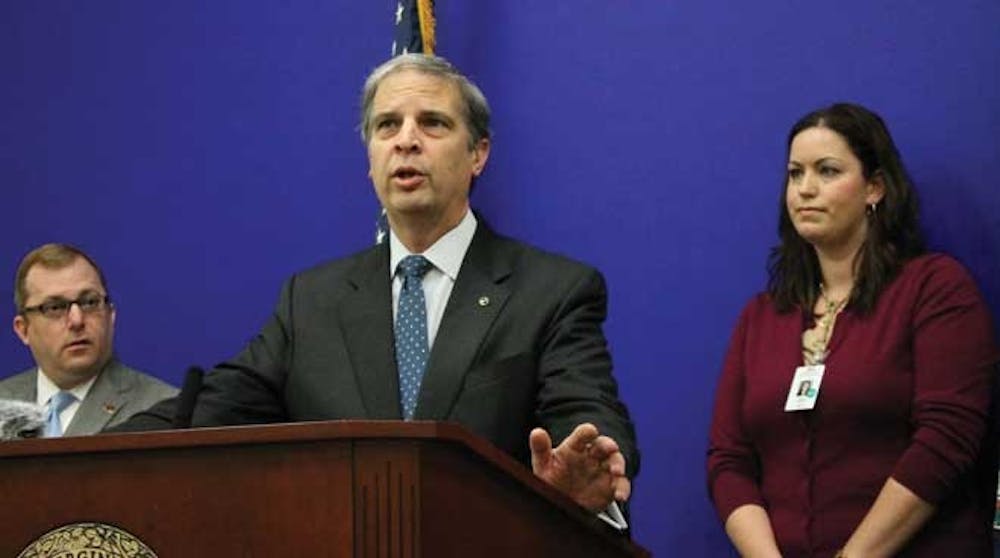Long Nguyen, a senior, didn't just study abroad--he spent the fall of his final university year engaging in illegal activity in Vietnam.
That illegal activity was speaking with people about Christianity without registering to do so, which was complemented by his work to stop human trafficking.
Nguyen spent his days in Vietnam teaching English and Bible classes for adults, he said. He also began research for his senior thesis, which is about the effectiveness of anti-trafficking work in Vietnam. For this research, Nguyen interviewed representatives of governmental and non-governmental organizations.
"The situation is understudied and the public is largely uninformed with it, which makes it a more severe problem than other crimes," Nguyen said.
But Nguyen's work didn't end with his return to University of Richmond for the spring 2014 semester. He is now a Virginia General Assembly intern for the Richmond Justice Initiative, RJI, a faith-based nonprofit organization that seeks to end human trafficking in Virginia.
Caraline Mikkelsen, also a senior, was an intern at RJI last spring, and she volunteered for the organization in the fall in preparation for the General Assembly. Mikkelsen researched and wrote legislative biographies about the senators and delegates who would be proposing human trafficking bills so that RJI staff and lobbyists would be well-informed when the assembly began.
"RJI is a great nonprofit," Mikkelsen said. "Their mission is amazing, and they're very genuine."
Nguyen and other volunteers from Virginia, including a group of students from Liberty University, attended RJI's lobby day at the General Assembly on Jan. 16. They met with legislators to discuss issues of human trafficking and were formally introduced at the House and Senate sessions.
Sara Pomeroy, founder and director of RJI, said one of the biggest roadblocks in stopping modern-day slavery was that U.S. citizens are not aware of how big of a domestic problem it is. She also said it was difficult to identify victims in Virginia because the crime was not legally defined in a specific manner.
Fourteen bills with concern for human trafficking issues have been introduced at the assembly this year. Virginia and Michigan are the only two states that remain without laws specifically regarding human trafficking, but legislators on both sides hope to change this.
One of these legislators is Republican Sen. Mark D. Obenshain (Harrisonburg), who hopes to establish human trafficking as a stand-alone crime with his 2014 bill, Senate bill 453.
"I think the biggest problem is awareness," Obenshain said at a press conference. "People just don't understand how this is happening in the Commonwealth ... right under our noses."
Enjoy what you're reading?
Signup for our newsletter
Democratic Sen. Adam Ebbin (Alexandria) seeks to develop a state-wide trafficking prevention program with his bill SB 322. "We need to do better," Ebbin said. "There are lifelong scars for these [victims], not to mention the dangers and horrors."
Pomeroy said her biggest hope for this year's session was simply progress. "Even if we don't pass the human trafficking statute, at least it will start the conversation," she said.
Contact staff writer Catherine Sinclair at catherine.sinclair@richmond.edu
Support independent student media
You can make a tax-deductible donation by clicking the button below, which takes you to our secure PayPal account. The page is set up to receive contributions in whatever amount you designate. We look forward to using the money we raise to further our mission of providing honest and accurate information to students, faculty, staff, alumni and others in the general public.
Donate Now



